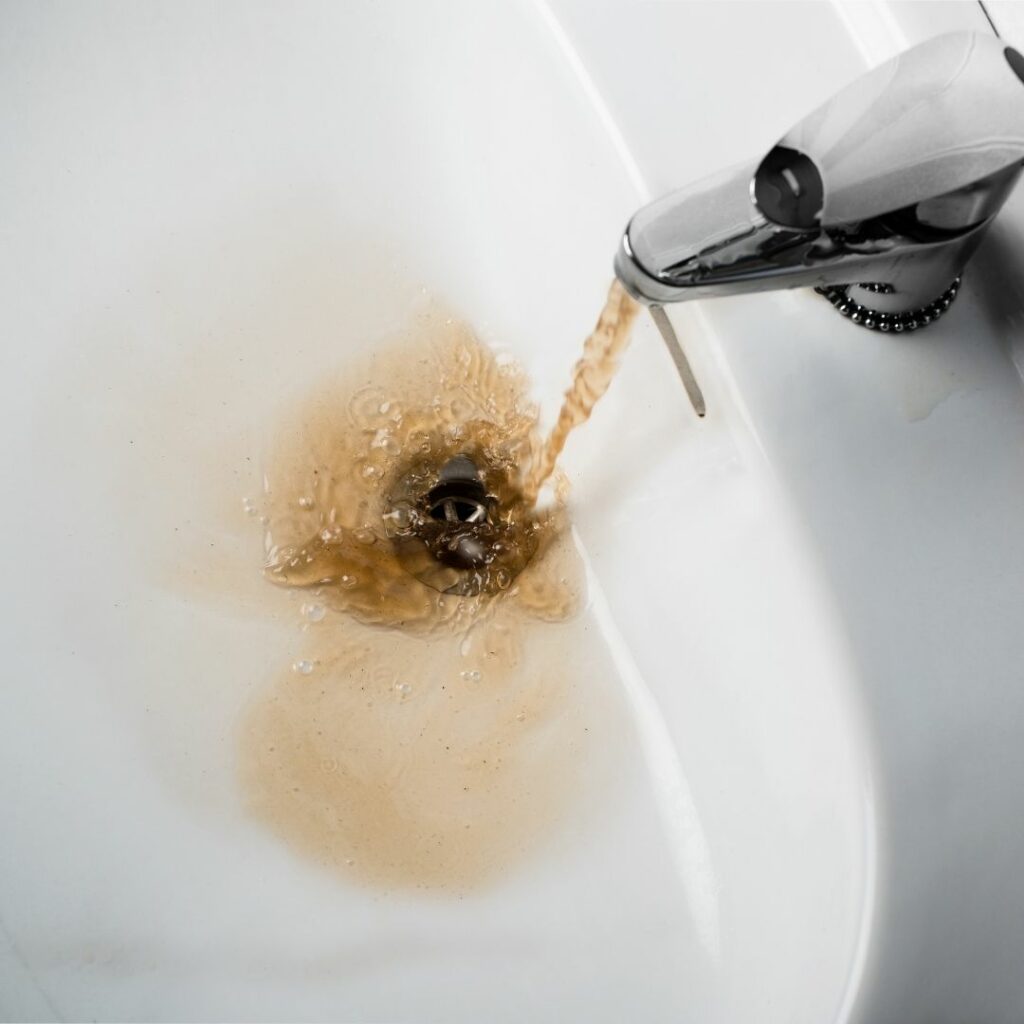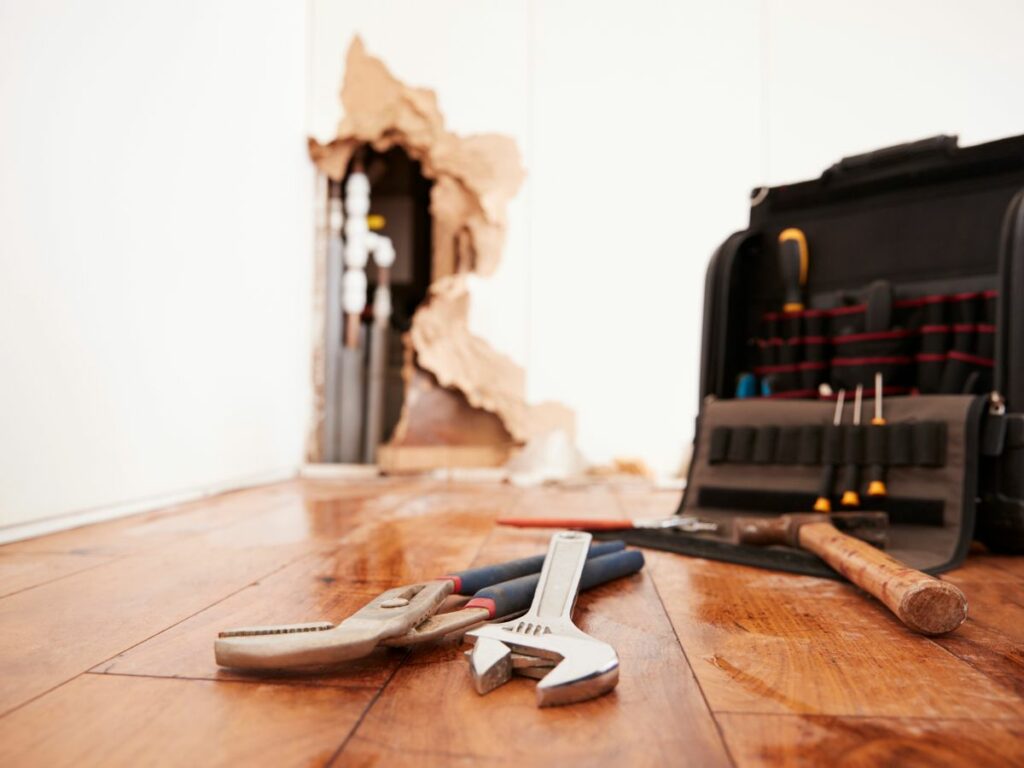Water is an essential resource for every household and ensuring its quality and safety is essential for our overall health and well-being. When it comes to well water in particular, proper treatment and maintenance are crucial to safeguarding its quality.
In this blog, we will explore the importance of water quality, focusing on well water safety tips. We will also discuss the role of water softeners, well water treatment systems, and the significance of professional plumbers in maintaining optimal water quality.


Well water can contain contaminants such as bacteria, viruses, heavy metals, pesticides, and chemicals. Consuming or using water contaminated with these substances can lead to serious health issues. Understanding these health issues can help you understand why it is important to stay on top of treating your water and what symptoms to look out for if you don’t think your well water is being properly treated. Regular testing and appropriate treatment measures are crucial for ensuring the safety of well water and protecting against these health risks.
Gastrointestinal problems: Pathogens in the water can cause stomach infections, diarrhea, and vomiting, leading to dehydration and electrolyte imbalances.
Skin problems: Contaminants can irritate and dry out the skin, resulting in rashes, itching, and eczema.
Long-term health complications: Chronic exposure to certain chemicals or heavy metals in contaminated water can lead to neurological disorders, developmental problems in children, hormonal imbalances, and an increased risk of certain cancers.
Vulnerable populations: Children, the elderly, and individuals with compromised immune systems are particularly susceptible to the health risks of poor water quality.

Well water treatment systems play a vital role in improving water quality and ensuring the safety of the water supply. These systems are designed to remove contaminants, improve taste and odor, and provide clean, healthy water for consumption and daily use. Water treatment systems try to eliminate or reduce the presence of contaminants in well water. These systems employ various techniques to address specific water quality issues.
Well water treatment systems are essential for safeguarding water quality and protecting against the health risks associated with contaminated water. By investing in the right treatment system and following recommended maintenance procedures, individuals can enjoy clean, safe, and healthy well water for their daily needs.
Filtration: Filtration is a common method used in well water treatment systems. It involves passing water through physical or chemical filters to remove impurities, sediments, bacteria, and other particles. Different types of filters, such as activated carbon filters and sediment filters, are used depending on the specific contaminants present in the water.
Disinfection: Disinfection is crucial for killing harmful microorganisms like bacteria, viruses, and parasites in well water. Common disinfection methods include chlorination, ultraviolet (UV) disinfection, and ozonation. These methods effectively destroy pathogens, ensuring the water is safe for consumption.
Softening: Well water often contains high levels of minerals, particularly calcium and magnesium, causing hardness. Water softeners are utilized to remove these minerals, preventing scale buildup in pipes, appliances, and fixtures. Softened water improves soap effectiveness, reduces spotting on dishes and glassware, and prolongs the lifespan of water-using appliances.
Regular testing of well water is crucial to identify any potential contaminants. It is recommended to conduct comprehensive water quality tests at least once a year. Additionally, professional inspections of the well and its components should be scheduled periodically to ensure everything is in proper working order.
To find reputable water testing laboratories or companies in your area, consider researching online directories, seeking recommendations from neighbors or local health departments, or consulting with professional plumbers.
Dealing with well water issues can be complex, and seeking professional assistance is highly recommended. Professional plumbers have the knowledge, experience, and specialized equipment to diagnose and address well water problems effectively.
When searching for a plumber, look for those experienced in well water systems and ensure they are licensed and insured. Local online directories, recommendations from friends or neighbors, and reputable plumbing companies can be valuable resources for finding trustworthy professionals near you. National Water Service is available for plumbing services in Maryland and surrounding areas.

Disinfection: Regularly disinfecting the well and water system is essential to eliminate harmful bacteria, viruses, and other pathogens. Follow recommended disinfection methods and frequencies, which may involve using chlorine or other disinfectants. Consult local health authorities or professionals for specific guidelines based on your location.
Well Cap Maintenance: The well cap serves as a protective barrier, preventing surface contaminants from entering the well. Ensure the well cap is securely in place and free from any damage or wear. Regularly inspect and maintain the well cap to ensure its proper functioning.
Monitoring Groundwater Sources: Stay vigilant about potential sources of contamination near your well. These can include septic systems, agricultural activities, or industrial sites. Regularly monitor the surrounding environment to identify any changes or potential risks. Take necessary precautions such as maintaining proper distances, implementing protective measures, or contacting relevant authorities or experts for guidance.
Regular Testing and Inspection: Conducting regular water quality testing is crucial for monitoring the safety of your well water. Test for common contaminants such as bacteria, nitrates, pesticides, and metals. Additionally, schedule professional inspections of the well and its components to ensure everything is in proper working order and address any issues promptly.
If you have installed water treatment systems such as filtration or softening, follow the manufacturer’s guidelines for regular maintenance. This may include replacing filters, monitoring system performance, and scheduling professional servicing when necessary.
By implementing these best practices for well water maintenance, you can help ensure the safety and quality of your water supply. Regular disinfection, well cap maintenance, monitoring groundwater sources, and proactive testing and inspection are key steps in safeguarding your well water and protecting the health of you and your family.
Ensuring water quality is essential, particularly when using well water. By understanding the significance of water quality, utilizing well water treatment systems, and seeking professional assistance, we can create a safer and healthier water supply. Regular water quality tests, appropriate treatment systems like water softeners, and the support of professional plumbers are key. By following these well water safety tips, we protect ourselves and loved ones from the health risks linked to poor water quality.
National Water Service has been providing residential & small commercial water treatment, plumbing & well pump services for over 45 years. We specialize in water treatment, filtration & purification solutions as well as general plumbing to ensure clean, safe water for our customers in Maryland, DC & Northern Virginia.
Mon - Thurs
7:00am - 5:00pm
Friday
7:00am - 4:00pm
Sat - Sun
Emergency Service Available
National Water Servicing Corporation — 2025 All Right Reserved ™